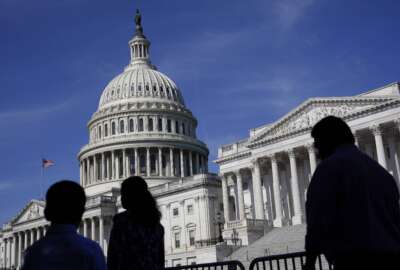
House heightens calls to change feds’ Social Security benefits, workplace safety plans
House committees advanced bills to repeal Social Security offset provisions, and to require agencies to create safety plans for future public health emergencies.
A bipartisan group of lawmakers pushed forward a bill to eliminate two longstanding provisions that reduce Social Security benefits for federal retirees.
After gaining 299 cosponsors in the House, the Social Security Fairness Act cleared the Ways and Means Committee on Sept. 20, setting the stage for a potential House floor vote.
But members of the committee are still working to hammer out some details of the legislation.
“The bill we are considering today is very popular, but there are also concerns about its broader impact on the solvency of Social Security,” Rep. Richard Neal (D-Mass.), the committee’s chairman, said. “We are faced with a very challenging question—how to address the concerns of hardworking public servants while also safeguarding Social Security for all, and for generations to come.”
The bill, introduced by Rep. Rodney Davis (R-Ill.) and sponsored by Rep. Abigail Spanberger (D-Va.), would repeal the “evil twins” included in the 1935 Social Security Act that either reduce or completely eliminate Social Security benefits for two million retirees.
The first provision, the Windfall Elimination Provision (WEP), limits Social Security benefits for federal, state and local retirees who also received a government annuity. The second, the Government Pension Offset (GPO), lessens Social Security benefits for spouses, widows and widowers of federal retirees who are affected by the WEP.
“That means that millions of hard working public servants are receiving less for the retirement, even though they’ve typically worked for lower wages than most private sector workers,” Rep. Judy Chu (D-Calif.) said at the Sept. 20 committee hearing.
For decades, legislators have introduced similar bills to try to remove the longstanding WEP and GPO provisions, but this is the first bill that has advanced favorably out of a House committee.
The high number of cosponsors demonstrated “overwhelming and bipartisan support to do away with these unfair penalties that have been left unchecked for far too long,” wrote Ken Thomas, national president of the National Active and Retired Federal Employee (NARFE) Association in a Sept. 20 letter to the committee.
Chai Suthammanont Healthy Federal Workplaces Act
In another panel meeting on Sept. 20, the Oversight and Reform Committee favorably passed legislation that would require all agencies to create safety plans for responding to future public health crises.
The Chai Suthammanont Healthy Federal Workplaces Act, which Rep. Gerry Connolly (D-Va.) introduced, would require agencies to maintain health and safety protocols, including guidelines for “testing, cleaning, occupancy limits, use of personal protective equipment, notification of individuals who may have been exposed and protections for employees who travel off-site,” the committee wrote.
The bill is named after a front-line federal employee who died from COVID-19 during 2020.
“We must learn from this and other losses and ensure that the health and safety of the civil servants whom the American people rely on every single day is prioritized,” Connolly said in a Sept. 20 press statement.
Under the legislation, agencies would have to publish their safety plans online and share their protocols with all employees and contractors. Inspector general offices would have report to Congress on the implementation of agencies’ plans.
“This bill will provide greater transparency over federal agencies’ plans to prepare for future public health emergencies,” Rep. Carolyn Maloney (D-N.Y.) said.
And this isn’t the first time Connolly introduced the bill. In his 2021 iteration of the legislation, the bill focused more on agencies’ responses specifically to the COVID-19 pandemic, compared with a now broader context in the current version, which calls on agencies to create safety plans for any future public health emergency.
Copyright © 2025 Federal News Network. All rights reserved. This website is not intended for users located within the European Economic Area.
Drew Friedman is a workforce, pay and benefits reporter for Federal News Network.
Follow @dfriedmanWFED
Related Stories





